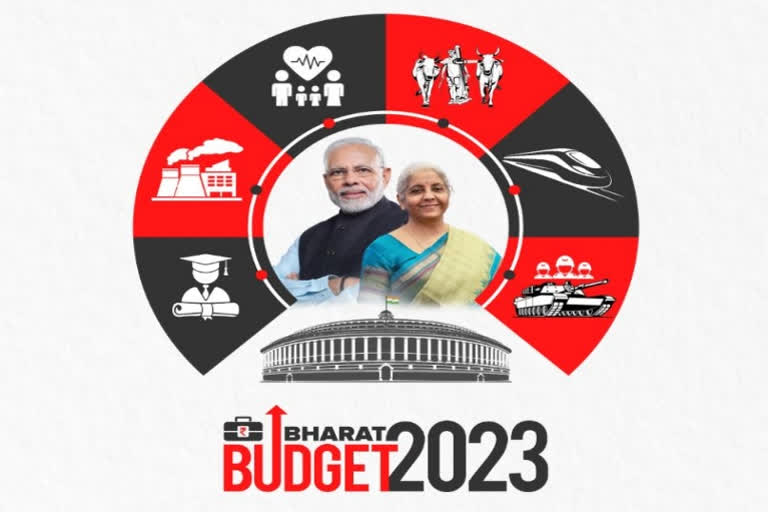New Delhi: With Budget 2023 around the corner, citizens have their expectations in place given the rising inflation and unemployment. In a survey conducted across various states ahead of this year's parliamentary budget, people from various strata of society have pointed out what they expect and hope from this year's budget.
"Earlier, the monthly household budget used to be Rs 25,000 which used to cover all expenses. But now due to inflation, the monthly budget has gone up to Rs 50,000. We spend most on the education of children," a homemaker from Delhi said while speaking about her expectations from the budget.
"Being a college-going student, my only hope is that the prices of daily necessities should decline. We are even struggling to buy small things -- edible oil, gas, and spices. This price rise issue is for all middle-class sections of society. It becomes difficult for students who don't earn but have to meet their daily needs nevertheless," said Swagata Dey from Kolkata.
Raising the same concern, a homemaker from Kolkata, Moula Dey said, "Prices of every item should fall to some extent, especially the cooking gas. It is getting difficult to run a family. Any decline in prices will make our home budget stable." She further added that the kitchen budget affects the entire household budget, while other things like education and dairy product prices have spiked and need to be lowered.
Anita Redekar, a canteen worker and a homemaker from Mumbai, also backed the women's demands. "Price of LPG cylinders is very high. Paying Rs 1100 per month for a cylinder is steep. Being a working mother with two children who earns Rs 11,000 per month, it gets difficult to manage expenses amid rising inflation," Redekar said. Mahesh Gaikwad, an employee at the Mumbai Vidya Peeth, meanwhile demanded that the government should increase the basic income tax exemption limit.
Putting focus on inflation and market prices, another person from Kolkata said that the 'ease of doing business' cannot persist if inflation is overlooked. "Covid has adversely affected the economy in India. Edible and drinking items have become very expensive. This inflation needs to be tackled first for ease of doing business. It is also imperative that the government draws its attention to the market fees," he said. He further added that exemption on tax for middle-class people who own properties worth less than 30 lakhs should also be considered by the government.
Emphasizing that the middle class is always the worst hit due to economic anomalies, Rekha Guin said that the government has been 'promising a decrease in prices, but they are only going up with every passing year'. "The working class and middle class like us get the worst hit because of inflation. Our salaries remain the same but the prices keep shooting. It becomes extremely difficult to sustain," Guin said.
Also read: All-party meeting: Opposition seeks discussion on Adani row during Budget Session
Matching expectations with the local masses, a textile industry expert Monish Tyagi also said that the government needs to work to arrest inflation. "After agriculture, the textile sector generates the most employment but nothing much is done in terms of incentives for small and medium textile units, many such units closed after Covid," Tyagi said.
Drawing attention to tax slabs, the Secretary General of ASSOCHAM, Deepak Sood said, "I think personal income tax from the lowest end to the highest end should be reconsidered for a lower tax slab. This will give more money in the hands of people for spending and also for investment. Manufacturing should be scaled up."
In another survey reported by the online platform LocalCircles, 52 per cent of respondents said that they feel that the economic uncertainty will persist for the next 6-12 months, at the backdrop of the job losses and unemployment in the country continuing to be on the rise. More than half of households who were the samples in this survey expect a decline in their income by up to 25 per cent and a dip in savings, and are looking for relief in the coming budget.
"Our survey indicates that the majority households in the country are facing the squeeze and in community discussions thousands of inputs were received by LocalCircles about lowering income tax rates or increasing deductions and exemptions," LocalCircles founder Sachin Taparia said.
LocalCircles claimed that 37,000 responses were received from household consumers across 309 districts of India, comprising 64 per cent men, 36 per cent women from tier 1, tier 2 and smaller towns as well. Fifty six per cent household consumers surveyed believe their average household savings will reduce during the current fiscal year while only 19 per cent households expect an increase, according to the survey.



